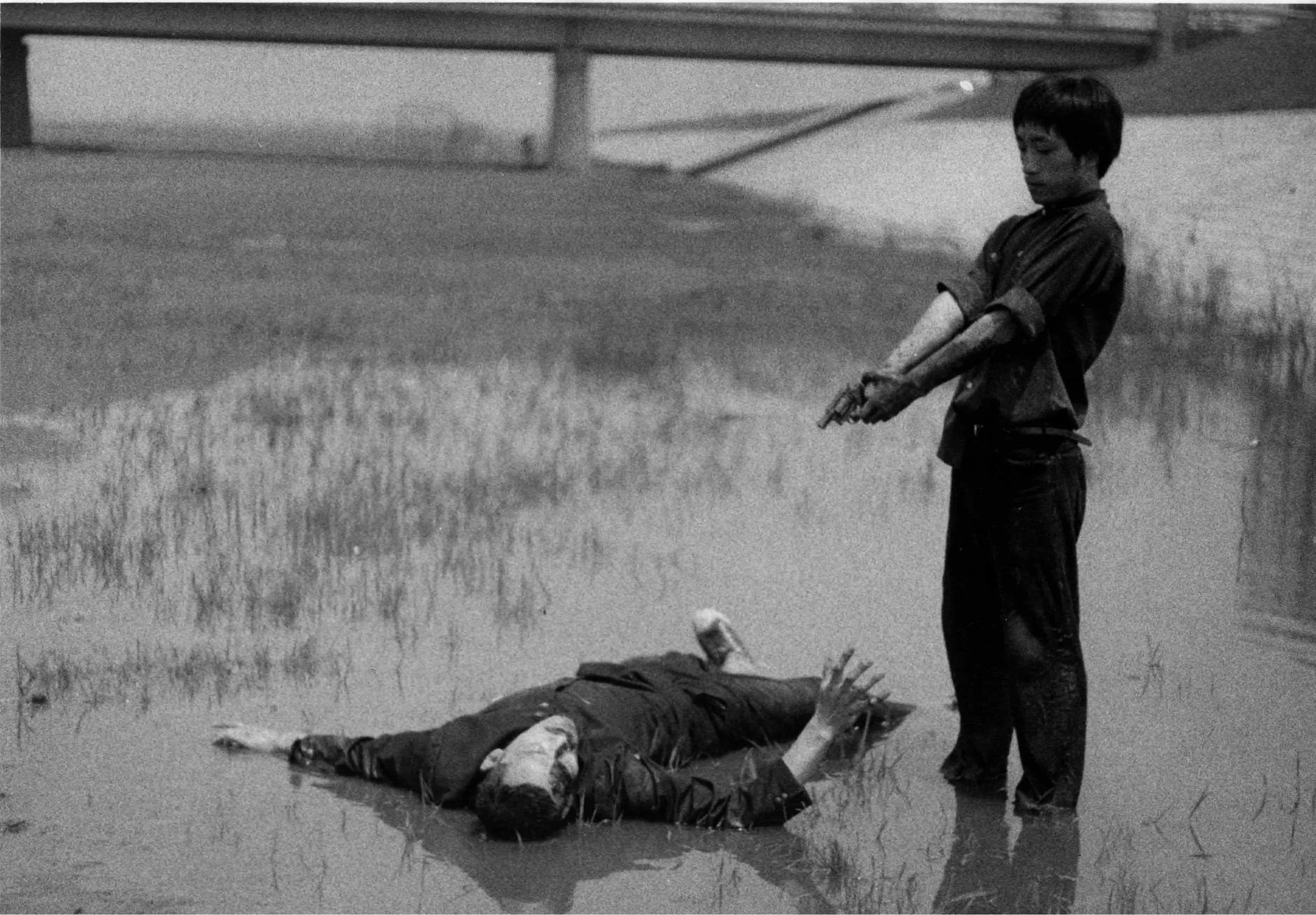Online Screening
Sex Jack (1970)
10/27-11/6/2022
Sex Jack (1970), Directed by Koji Wakamatsu; Screenplay by De Deguchi (Masao Adachi). Image ©Wakamatsu Production.
First of the two screenings in the series, “Stepping Out of Politics: Films by Masao Adachi” organized by Go Hirasawa starts off with Sex Jack (1970) directed by Koji Wakamatsu and screenplay written by Masao Adachi. Hirasawa will do a deep dive interview with Adachi about the film and more, on September 29th, not to miss!
“Stepping Out of Politics: Films by Masao Adachi” addresses the intersections between film and the philosophical questions of what is politics, revolution, film, and ultimately media itself. This program will explore these questions through the two screenings and the live discussion on October 29th.
The screening is available on CCJ’s viewing platform. $12 for non-members; $10 members.
Sex Jack, 1970, 70 min, part color, 35mm transferred to digital
Directed by Koji Wakamatsu
Screenplay by De Deguchi (Masao Adachi)
A representative work by Koji Wakamatsu with screenplay by Masao Adachi. Members of a sect who plan a militant uprising one day, hide in the apartment of the lower class laborers. The young resident pretends to have no interest in politics is actually a terrorist who assassinated an important political figure, and willingly provides monetary support to the group. Taking cues from the actual events organized by the Red Army such as the hijacking of Japan Airlines and attacks of regional police stations, the film criticizes the politically-centered attitude of Marxist revolutionary movement and draws from its periphery, the lower class laborers’ anarchist activism.
Warning: this film contains explicit sexual content.
セックスジャック
1970年/70分/パートカラー/35mm
監督:若松孝二
脚本:出口出(足立正生)
足立正生の脚本による若松孝二の代表的作品。武装蜂起を計画するあるセクトのメンバーたちが、ある契機から若い下層労働者のアパートで潜伏生活を送ることとなるが、政治に無関心を装っているその青年こそが、彼らに資金提供をしながら、政府要人を暗殺していたテロリストであった。日本航空機のハイジャック、各地の交番襲撃など、赤軍派によって実際に行われた武装闘争に材を得ながら、それらマルクス主義的な革命運動の政治中心主義を批判し、その外部から生み出される下層労働者のアナキズム的な飛躍を描いた。
Koji Wakamatsu
Debuted his pink film Sweet Trap in 1963, and set forth a national disgracing disturbance by submitting the Secrets Behind the Wall (1965) to the Berlin International Film Festival, and upon return established his own production company, Wakamatsu Production. Rising filmmakers such as Masao Adachi and Atsushi Yamatoya joined and established pink film genre as their base, produced numerous problematic works such as The Embryo Hunts in Secret (1966), Violent Virgin (1969, Shojo Geba Geba), and Go, Go, Second Time Virgin (1969, Yuke Yuke Nidome no Shojo). After the film United Red Army (2008, Jitsuroku Rengōsekigun) which United Red Army, an international reevaluation of Wakamatsu followed. Wakamatsu passed away in 2012.
Go Hirasawa, Meiji Gakuin University (Tokyo)
Go Hirasawa is a researcher at Meiji-Gakuin University working on underground and experimental films and avant-garde art movements in 1960s and '70s Japan. His publications include Godard (Tokyo, 2002), Fassbinder (Tokyo, 2005), Cultural Theories: 1968 (Tokyo, 2010), Koji Wakamatsu: Cinéaste de la Révolte (Paris, 2010), and Masao Adachi: Le bus de la révolution passera bientot près de chez toi (Paris, 2012). He has organized more than fifty film exhibitions throughout the world, including Underground Film Archives (Tokyo, 2001), Nagisa Oshima (Seoul Art Cinema, 2010), Koji Wakamatsu and Masao Adachi (Cinematheque Française, 2010), Theatre Scorpio: Japanese Independent and Experimental Cinema of the 1960s (Close-Up: London, 2011), and Art Theater Guild and Japanese Underground Cinema, 1960–1986 (The Museum of Modern Art, New York, 2012).

